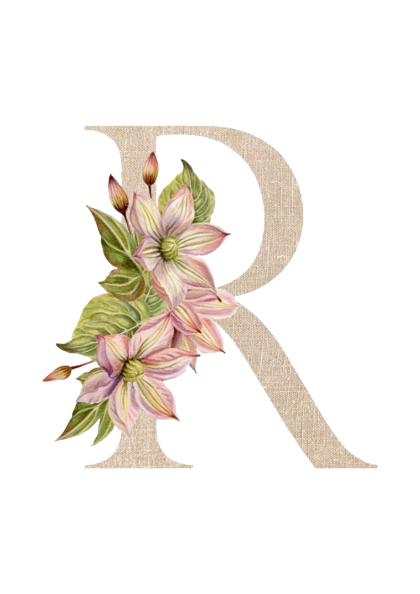Medicinal Mushrooms
What are they?
Fungi are one of the most diverse groups of organisms in the world, existing before most other species, they have spent billions of years learning how to adapt to any environmental threat. Fungi are not plants. They don't have chlorophyll so they can't make their own food. Fungi release enzymes that decompose dead plants and animals. Fungi absorb nutrients from the organisms they are decomposing. As a result, mushrooms offer a multitude of health benefits, which we get some of from the common mushroom, but they are taken to a whole new level when we enter into the realms of the exotic!
Mushrooms have been used for their medicinal properties in Asia for thousands of years, revered for their ability to support immunity and promote longevity. We are just catching up in the western world, and as such, in recent years ‘the weird + the wonderful’ of the mushroom world have entered their way into the cupboards of those looking to maximise their health through natural means. Perhaps unsurprisingly, given what I have written above about how mushrooms survive themselves, mushrooms are adaptogens. This means they literally support your body to adapt to any deregulation of homeostasis within the body, thereby helping bring balance back, and hence supporting healing + long term health.
Of course it is important to note that many varieties of mushrooms are harmful to the body, at times deadly, so it is important to purchase your mushrooms from a reliable source. You can now buy kits to grow them in your own home, and even forage for them yourself, but it is really important that if you are doing this, you take the time to make sure you learn what is safe + what is not, and don’t take any risks.
Why would you include them in your diet?
Medicinal mushrooms are nutritional powerhouses with a plethora of health benefits, much of which come from the polysaccharides within them. They are also rich in vitamins and minerals, such as B vitamins, Vitamin D, iron, copper and selenium. They are also an excellent source of fibre. The following can be said of their benefits:
Supportive of the immune system (included, but not limited to anti-cancer properties)
Antioxidants that help combat free radicals in the body
Anti-inflammatory benefits
Help to manage blood sugar
Support neurological health
Nervous system support
Wonderful for energy levels
When it comes to how mushrooms can support our bodies fight cancer, I remember when I was first training in nutrition. I heard it said that a component within mushrooms, once in the blood, supports the immune system in finding damaged cells. Once found, it then sends off a beacon to the relevant immune ‘fighting’ cells to tell them that that cell is damaged + that it needs to either be healed or destroyed. That blew my mind. It was the first time I realised just how crucial a balanced diet was, because we can eat kale until the cows come home, but without mushrooms (for example, but of course we need a balance of a lot of stuff!), our bodies wouldn’t have that very specific thing that is so crucial for our health! We all have damaged cells in our bodies every day, but we stand a better chance of them not developing into something dangerous if our body has the tools to heal or destroy them early on. Mushrooms are an excellent support here.
To read more on the science in this space, I have included some links below.
What types are there?
Chaga
Lion’s Mane
Cordyceps
Reishi
Turkey Tail
Shiitake
Maitake
Oyster
How do you use them?
Fresh: I absolutely LOVE it when I see a huge pile of fresh medicinal mushrooms in organic supermarkets, and what I love even more is that my children get excited too! We fill bags up with them, all the different kinds, take them hope, chop them up, and simply fry them in a little extra virgin olive oil with some fresh garlic (or dried), and top with fresh chopped parsley and some sea salt! The best!!!!!!!!!!!
Dried: I get a Riverford organic box (x10 often!) delivery every week. They sell Shiitake mushrooms most weeks, and I pretty much always buy a couple of boxes, which I then dry out in my dehydrator. I therefore always have a stash that I can throw into any oriental dish, or into soups. They rehydrate as you cook them, but also retain a slight chew from having been dried out. Delicious!
Powders: Mushroom powders are an easy way to get them into your diet. I mix them into smoothies, hot cacao, on top of porridge, any which way I like, in powder form (they do go especially well with cacao!). I like this brand. I buy the complex mix (you only need a small amount each time, 1/4 to 1/2 tsp per serving, so it lasts a long time).
Chunks: Some mushrooms are rock hard, like reishi and chaga. You’ll find these available in chunks of different sizes, which you can boil into a tea, which you can then go on to add to anything you like. Here is my recipe for Chaga cacao latte, with instructions how to make the tea.
In conclusion
Eat them! Drink them! Get them in your body!
Additional learning:
https://www.cancer.gov/about-cancer/treatment/cam/hp/mushrooms-pdq
https://www.sciencedirect.com/topics/biochemistry-genetics-and-molecular-biology/medicinal-mushroom
Find me on Instagram at @rochelle.a.hubbard You can join me on Telegram here.

